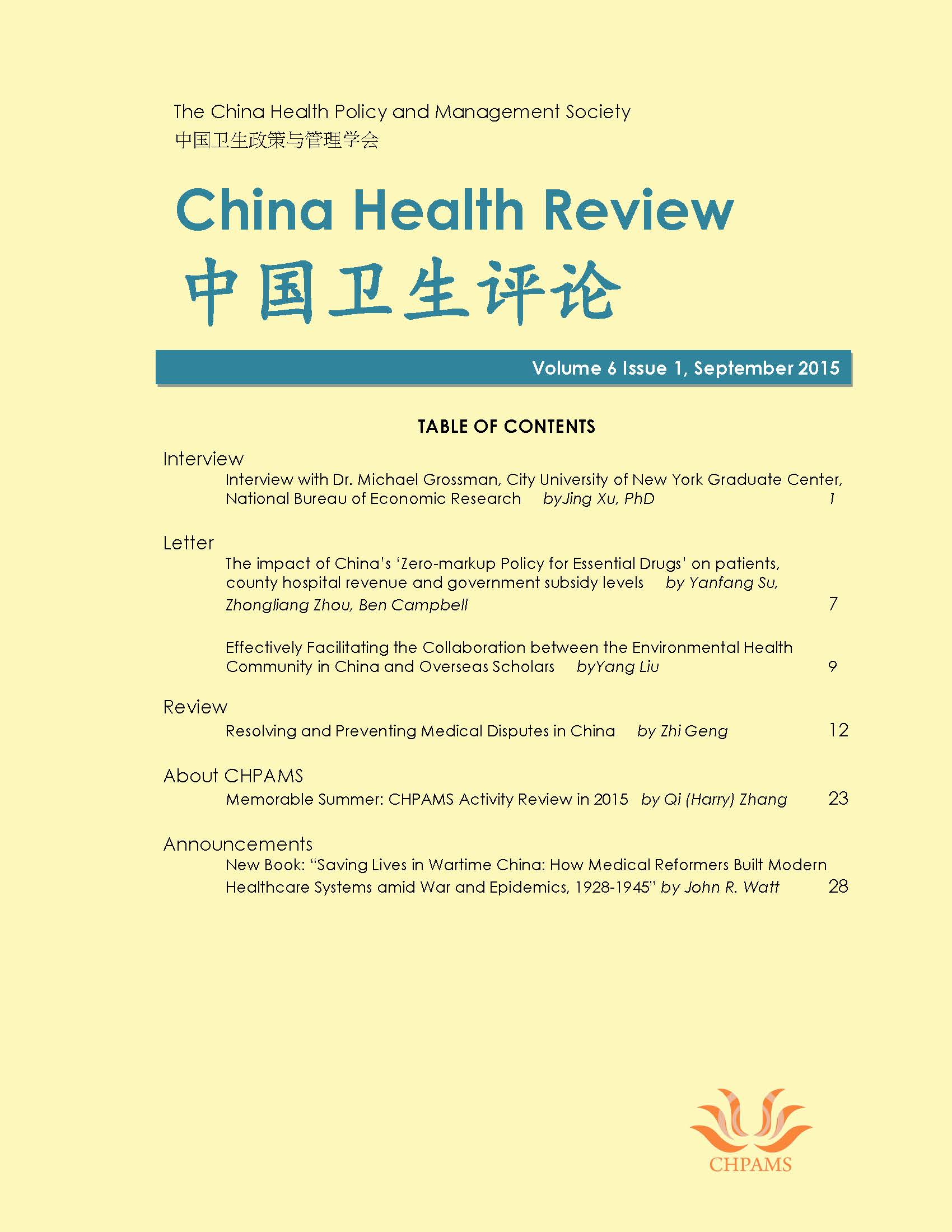The impact of China’s ‘Zero-markup Policy for Essential Drugs’ on patients, county hospital revenue and government subsidy levels
Resumen
经倍差法分析,药品零差率政策对病人的就医费用和医院收入有显著影响。政策实施后,次均门诊费用降低19元,次均住院费用降低近400元;县级医院的医疗服务提供量增加、医院总收入增加的同时,药品收入减少。从政府补贴的角度看,我们的研究测算了确保医院收入年增长率5%的情况下,药品零差率政策实施时政府应该补贴给医院的额度。分析表明,即使药品的价格下降,因为医疗服务的使用率增加,医院收入增加,政府补贴的负担很小。经系统分析,药品零差率政策可以在零补贴或者是少量补贴的情况下可持续地实施。
In 2009, China implemented a Zero-markup Policy for Essential Drugs (ZPED), a policy with potential to dramatically improve health in the country. This series of studies aims to evaluate the impact of ZPED on patients, county hospital revenue and government subsidy levels.
Data from Ningshan and Zhenping county hospitals were collected. The hospitals were selected because they were comparable in many ways, with the exception of Ningshan having implemented ZPED during a period when Zhenping had not. Ningshan, therefore, was used as the experimental group and Zhenping the control group. To compare outcomes of interest between the counties, the primary method of analysis was a difference-in-differences model.
The results showed that ZPED had an effect on patients’ medical expenditure, county hospital revenue and government subsidy levels. With regard to patients, in absolute terms, the total expense per visit reduced by 19.02 CNY (3.12 USD) for outpatient services and 399.6 CNY (65.60 USD) for inpatient services. In relative terms, the expense per visit was reduced by 11% for both outpatient and inpatient services. With regard to the impact on county hospital revenue, for Ningshan County hospital, ZPED led to an increase in health care provision and a sustained total hospital income despite a decrease in drug revenue. Lastly, with regard to government subsidy levels, the research demonstrates that with minimal or no subsidy, the government can catalyze the zero-markup policy and potentially generate positive outcomes for county hospitals. Overall, this research showed that ZPED has led to positive outcomes for patients, county hospitals and the government.
Citas
Z. Zhou, Y. Su, et al. 2015: “The financial impact of the 'Zero-markup Policy for Essential Drugs' on patients in county hospitals in western rural China,” PLOS ONE. [English] (Data shared via Harvard Dataverse Network, doi:10.7910/DVN/28588)
Z. Zhou, Y. Su, et al. 2013: “The Impact of Zero-markup Policy on Inpatient Expenditure: Evidence from County Public Hospital in Shanxi Province,” Chinese Journal of Health Policy. [Chinese]
Z. Zhou, Y. Su, et al. 2015: “The impact of China’s Zero-Markup Drug Policy on county hospital revenue and government subsidy levels,” Journal of Asian Public Policy. [English] (DOI: 10.1080/17516234.2015.1005561) Free online access to the article with up to 50 colleagues via this eprint link http://www.tandfonline.com/eprint/Y7iHvTp435BfaK32FrYr/full

